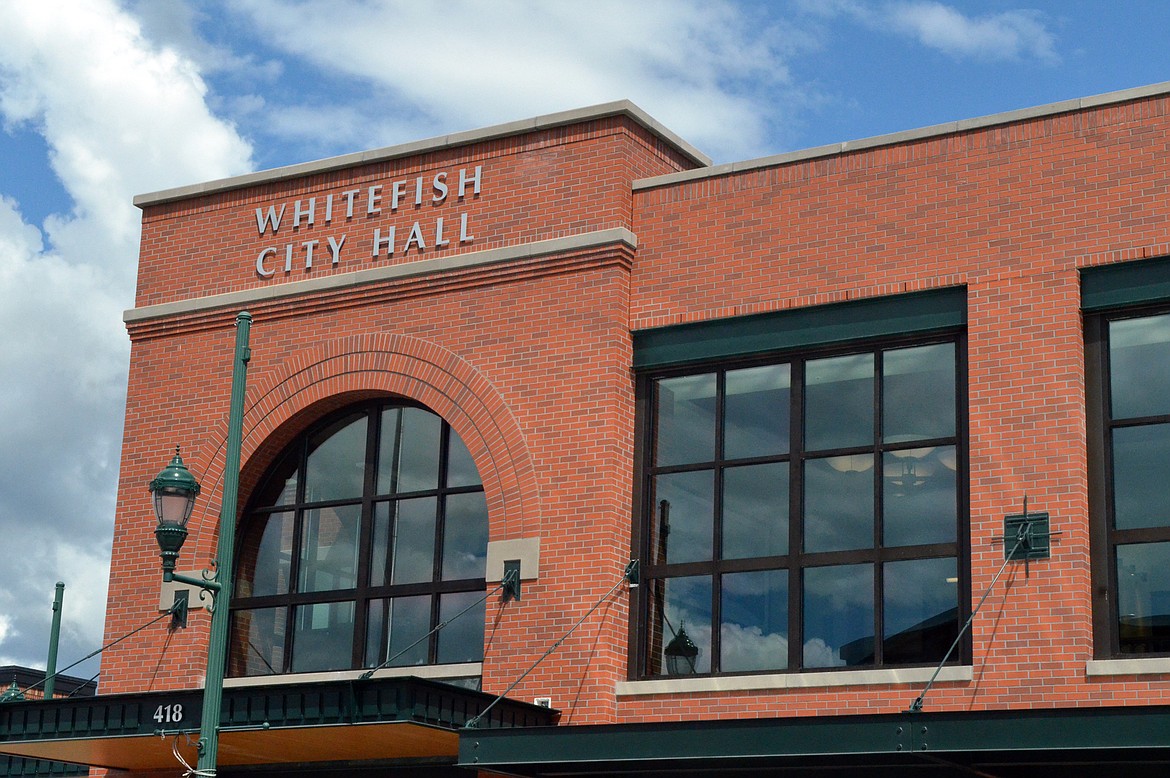Whitefish denies violating open meeting laws
Heidi Desch / Whitefish Pilot | Hagadone News Network | UPDATED 6 years AGO
The city of Whitefish is rejecting allegations that officials violated state open meeting laws regarding the creation of the city’s affordable housing program.
In response to a lawsuit filed against it in Flathead District Court last year, the city denies allegations it violated the public process and is subsequently seeking dismissal of the lawsuit.
Planning consultant Mayre Flowers and her company CommUnity Consulting filed a lawsuit in June 2019 claiming the city’s process in creating its inclusionary zoning program was illegal and contrary to the transparent public process the Montana Constitution requires.
Attorney Marcel A. Quinn is representing the city in the lawsuit. In its response, the city denies allegations related to multiple incidents related to Flowers’ claims the city violated her right to know, Montana’s open meeting laws, and violated her right to participate during the process of creating the program.
The city states the case should be dismissed because Flowers has failed to exhaust administrative remedies to the issues raised. In addition, Whitefish has also filed a motion with the court seeking the disqualification of Flower’s attorney.
In the lawsuit, Flowers alleges the city held more than 30 closed-door meetings and refused requests to open meetings and provide documents related to the meetings, and in addition, failed to keep minutes of the meetings. The city, in its response, denies the allegations.
Flowers’ lawsuit also points specifically to the City Council’s annual board retreat in March 2019, claiming the council held the meeting without noticing the public or producing minutes.
In court documents, the city admits the council attended the retreat; however, it denies “the annual retreat was a ‘meeting’ for which notice, agenda or minutes is required.”
The lawsuit was amended in September by Flowers’ attorney, adding a claim the city violated its own governing regulations and procedures by allowing the Whitefish Strategic Housing Plan Steering Committee to create an ad hoc subcommittee and subsequently failed to ensure that the group’s meetings were open to the public. The city denies that claim.
In November, the city filed a motion seeking the disqualification of Flowers’ attorney, Michelle Weinberg, from the case. The city claims Weinberg had conversations with City Council member Frank Sweeney shortly after the lawsuit was filed, but before Sweeney and the city were made aware of the lawsuit. The conversations are alleged to have taken place during a private dinner where both of their spouses were also in attendance, according to documents.
“In those conversations, she asked Mr. Sweeney numerous questions about the very subject of this lawsuit,” the city says in court documents, and “unfairly and improperly solicited” statements from him without an attorney for the city being present.
“Through an unfair and improper fashion, she gained insight into the case that can guide her future actions,” the city asserts.
The city is asking that Weinberg be removed, claiming she could use those statements from conversations against the city. Alternatively, the city is asking that the plaintiff be precluded from using any of statements made by Sweeney.
Quinn, in representing the city in the lawsuit, said he requested Weinberg disclose what she recalled from her conversations with Sweeney, but she refused and demanded to hear what Sweeney recalled first.
Weinberg denies she engaged Sweeney in a conversation about the subject matter of the lawsuit, according to court documents, “because of the duty of confidentiality she had to her client and her own personal ethics.” Weinberg filed a motion asking the court to deny the city’s motion to have her removed.
Weinberg claims Sweeney’s allegations are contradicted by her own affidavit and that of her husband, saying they don’t recall such conversations as having taken place. She also said Quinn “began a sustained effort to pressure” her into admitting that a conversation took place about the lawsuit and thus violated the state bar’s Rules of Professional Conduct without providing evidence of the conversation.
Weinberg said the city is making an assertion through its motion that an attorney “investigating a legislative act can never communicate with an elected official about city ordinances and resolutions on behalf of a client,” which is inconsistent with mandates “providing for open government and public participation in governmental operations.”
Flowers’ lawsuit is asking the court to find the ordinance and resolution implementing the affordable housing program, known as the Legacy Homes Program, to be found void.
The suit also seeks an order requiring the City Council to adopt rules of public participation for all meetings of the council and committees, boards, and authorities and entities of the city.
In addition to the city, the lawsuit also lists the Whitefish City Council, the Whitefish Strategic Housing Steering Committee and the inclusionary zoning ad hoc subcommittee as defendants in the case.
The city stated in its response that the Housing Steering Committee and the ad hoc subcommittee are not legal entities and therefore can’t be the subject of a lawsuit.
ARTICLES BY HEIDI DESCH / WHITEFISH PILOT
T is for Trieweiler
Whitefish coffee shop a collaborative effort
Inside Wild Coffee Co., behind a bar, an artistic rendering features two grizzly bear positioned on their hind legs snarling at each other. Walls have been painted a deep rich green accented by natural wood, while the cafe’s logo features a tree.
Great Fish Challenge delivers $2.8M to nonprofits
The Great Fish Community Challenge hit another high this year, raising a total of more than $2.8 million for 53 nonprofits.

